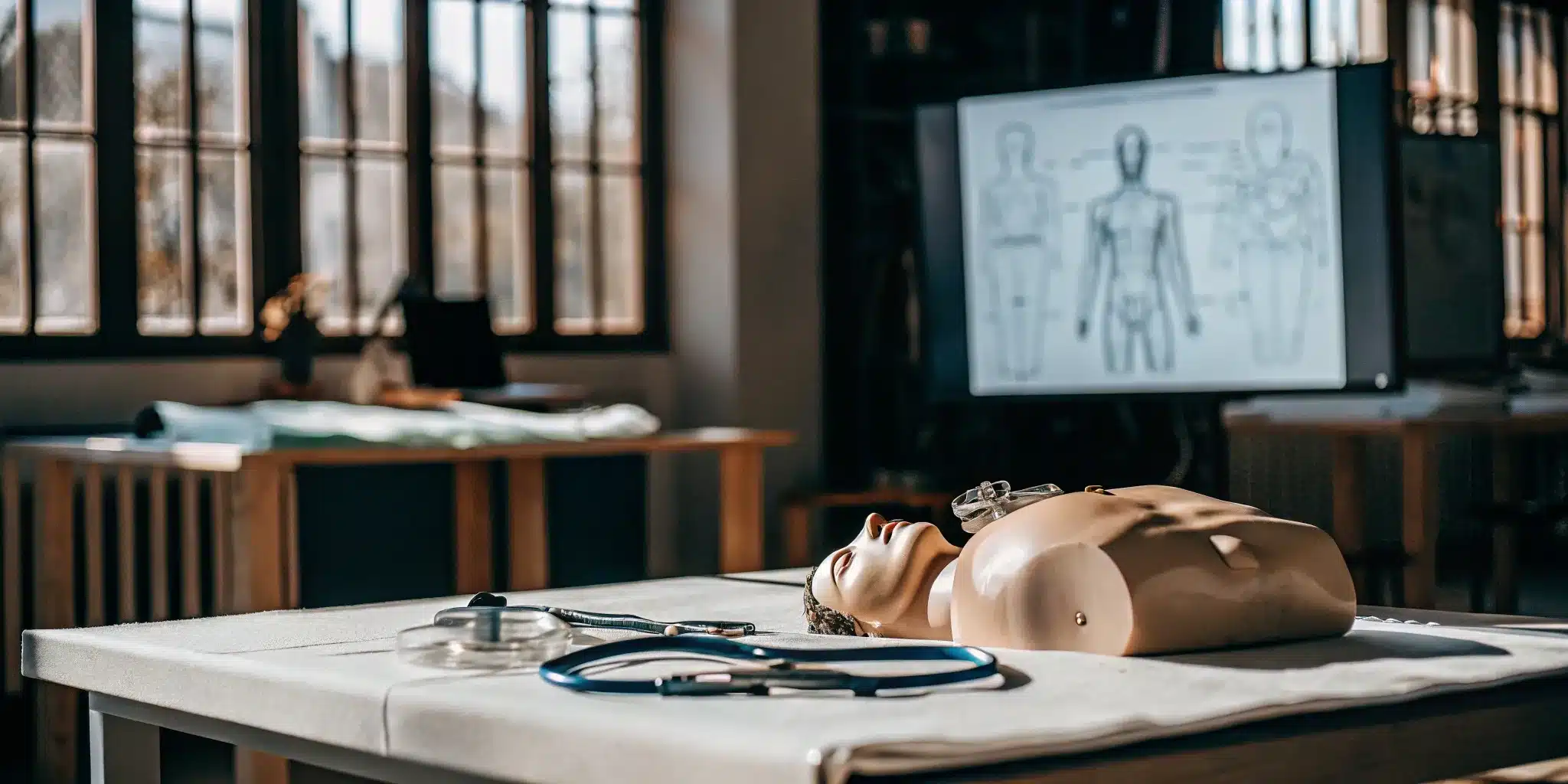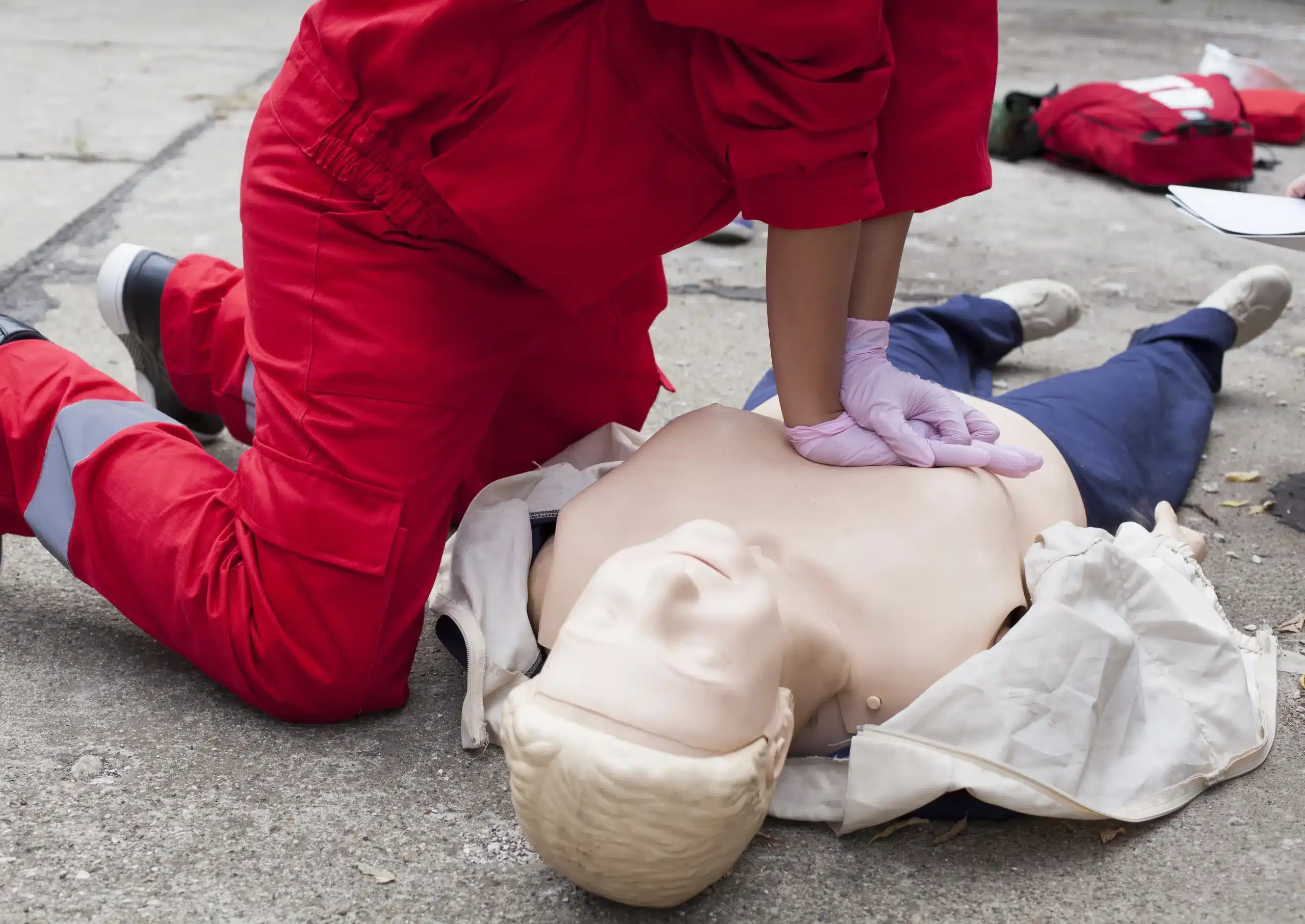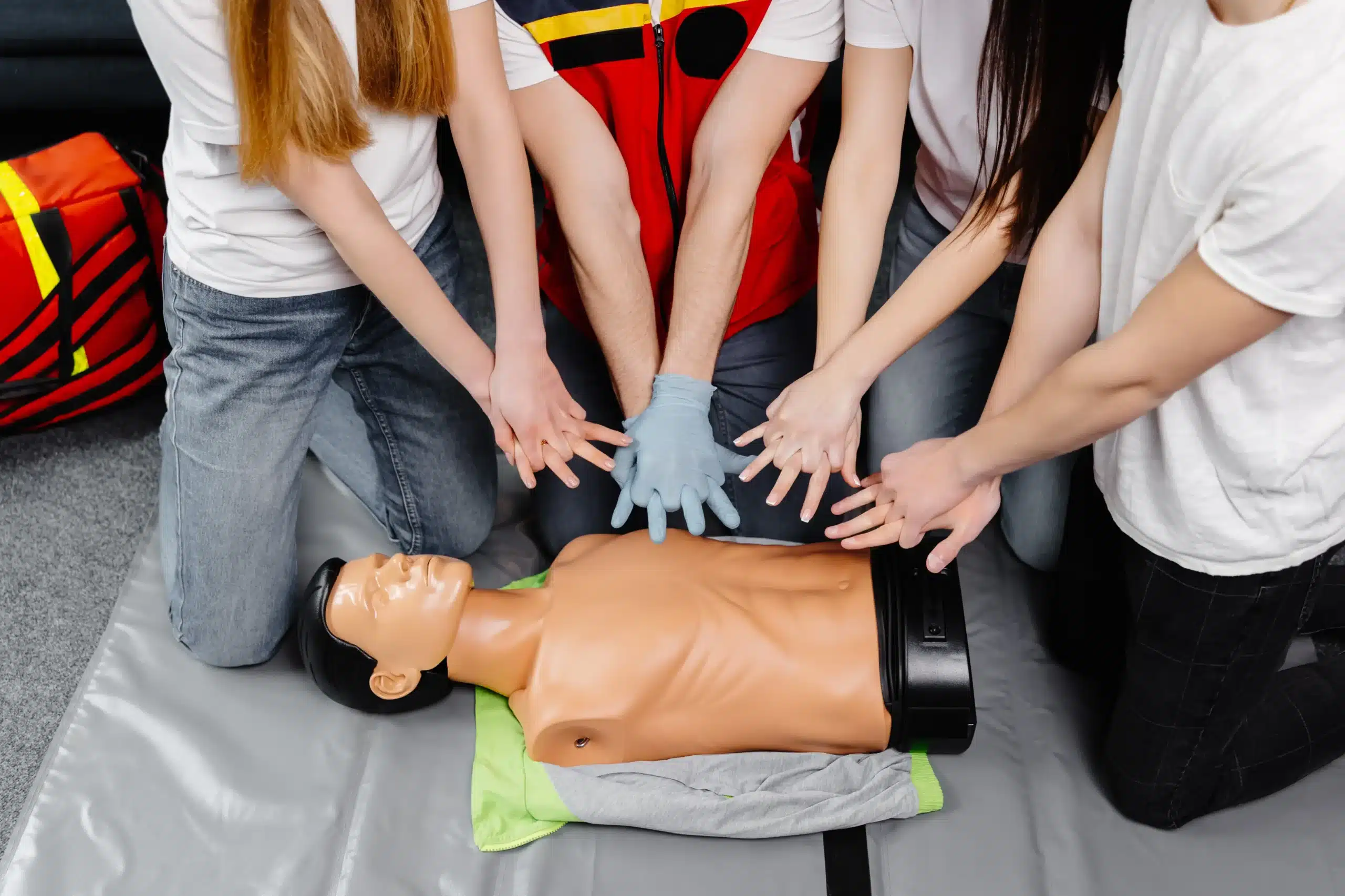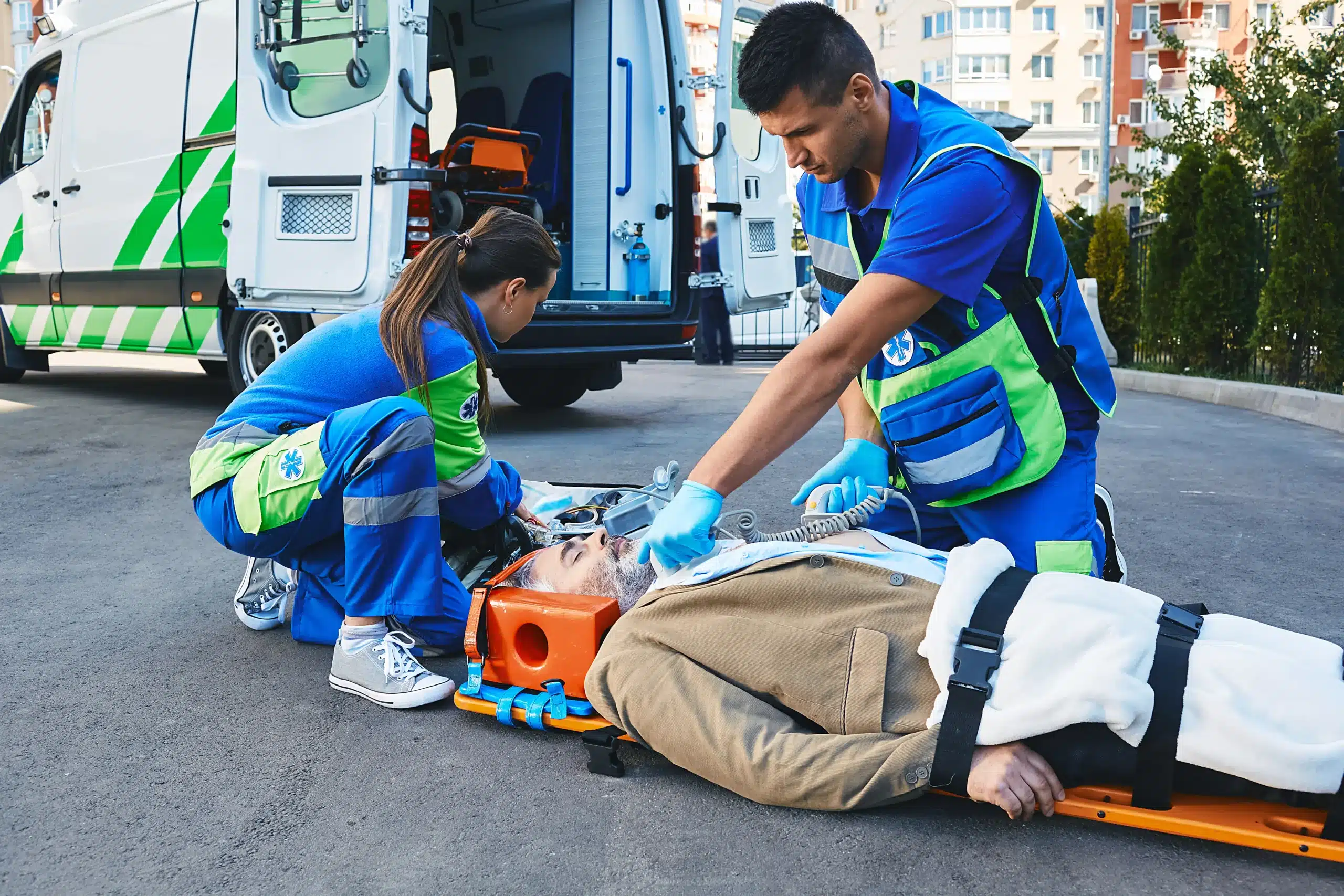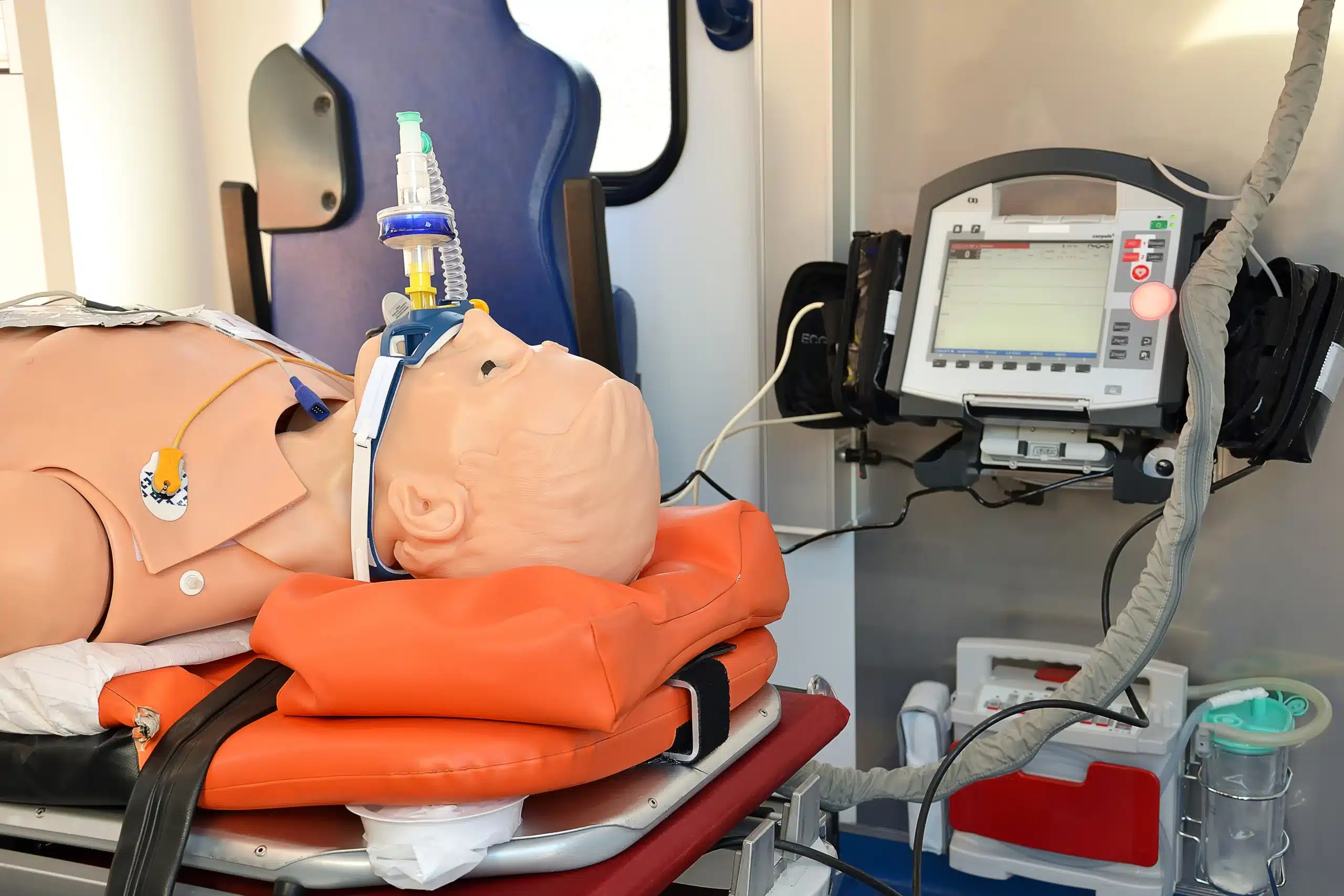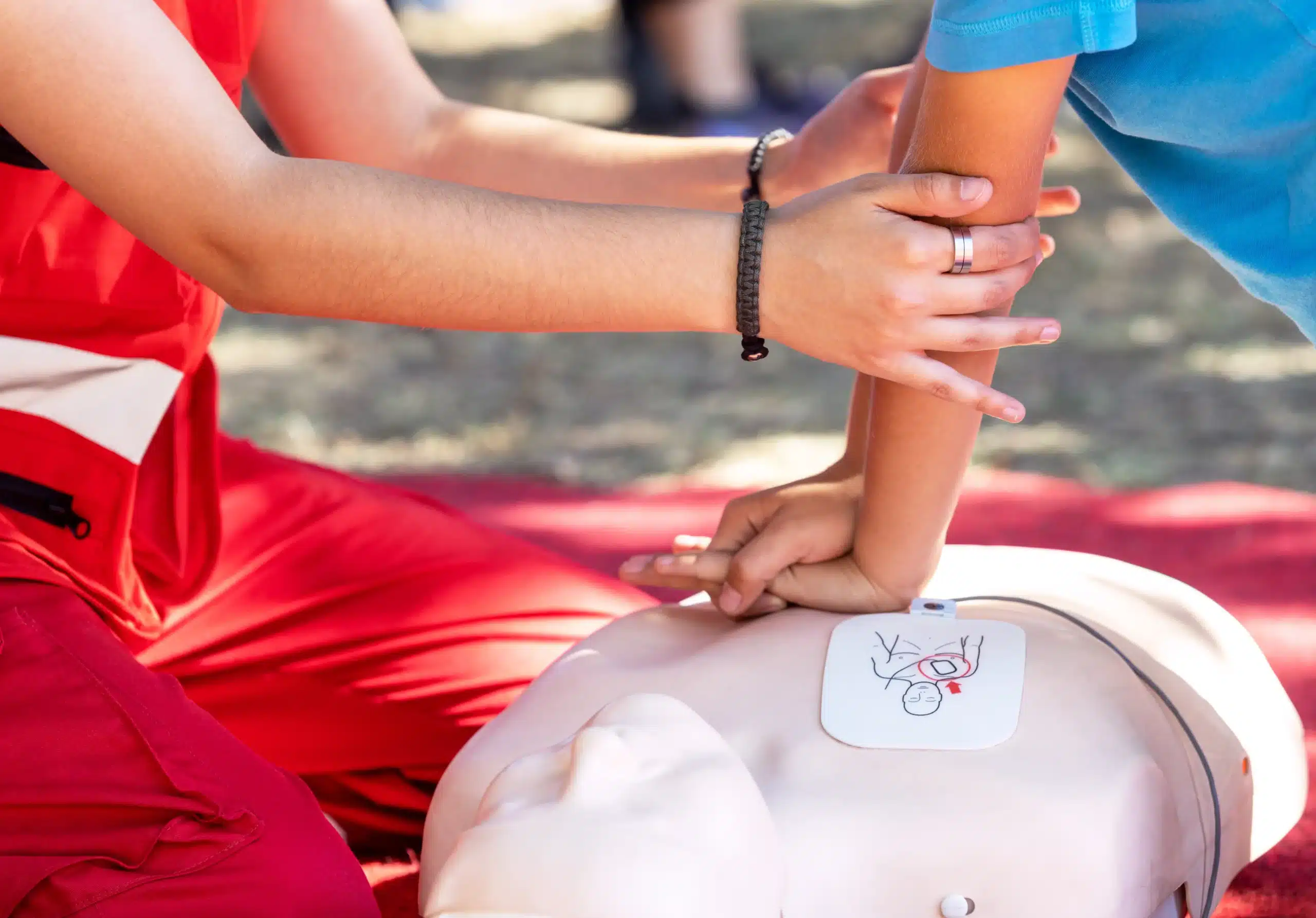Working in healthcare, especially around kids, means being ready for anything. PALS certification, or Pediatric Advanced Life Support, gives you the skills to handle pediatric emergencies with confidence. But finding the right training can be tricky. This guide breaks down everything you need to know about online PALS classes in Lodi, from course structure and costs to the benefits of certification and how to choose the right program. We’ll cover providers like Tracy CPR Classes and Lodi CPR Classes, discuss the differences between online and in-person training, and offer tips for successful online learning. Let’s get you prepared to provide the best possible care for young patients.
Key Takeaways
- PALS certification equips you with essential skills: It provides healthcare providers with the knowledge and confidence to effectively manage pediatric emergencies, leading to better patient outcomes. Consider your learning style and schedule when choosing between online or in-person training.
- Research is key to finding the right PALS course: Compare providers, consider accreditation and course structure, and ask questions about costs and included materials. This ensures the course aligns with your professional needs and learning preferences.
- Maintaining your PALS certification requires proactive effort: Track your expiration date, understand renewal requirements, and explore continuing education opportunities to stay current in pediatric advanced life support. This ongoing commitment ensures you’re always prepared to provide the best possible care.
What is PALS Certification and Why is it Important?
PALS, or Pediatric Advanced Life Support, is a specialized program designed for healthcare providers who respond to emergencies involving infants and children. This training goes beyond basic CPR and focuses on the distinct needs of young patients. It emphasizes recognizing and managing life-threatening respiratory and cardiac events. PALS certification is essential for any healthcare professional who might encounter pediatric emergencies.
The importance of PALS certification is critical. It equips healthcare providers with the skills and knowledge to effectively manage pediatric emergencies, which can significantly improve patient outcomes. The PALS courses offered by the American Heart Association, including those available through Tracy CPR Classes, aim to give professionals the confidence to handle these critical situations. PALS certification can also enhance career opportunities and boost confidence in critical situations, especially for those working in emergency departments, intensive care units, and other pediatric care settings.
Find Online PALS Classes in Lodi: Providers and Options
Finding the right PALS certification course can feel overwhelming, but several excellent providers serve the Lodi area. Here are a few options to explore:
Tracy CPR Classes
Tracy CPR Classes offers American Heart Association (AHA) Pediatric Advanced Life Support (PALS) certification courses designed for healthcare providers. These courses focus on building the skills needed to manage pediatric emergencies. Check out their PALS course for more details.
Lodi CPR Classes
Located right in Lodi, Lodi CPR Classes provides comprehensive AHA PALS certification. Their blended learning approach combines online coursework with in-person skills testing, ensuring you’re prepared for real-world situations. Typically, this involves 3-4 hours of online study and a 30-40 minute skills session. Visit their website for more information.
ACLS.com
If you need your certification quickly, ACLS.com offers a fully online PALS certification course you can complete at your own pace. You’ll receive a digital provider card upon completion, and the course typically takes about 8 hours, offering 8 CEU/CME credits. Learn more about PALS certification through ACLS.com.
American Red Cross
The American Red Cross also offers PALS certification, combining online learning with hands-on skills practice for a well-rounded learning experience. Their PALS course equips you with the skills to respond to pediatric emergencies.
Explore Online PALS Course Structure and Duration
Online PALS courses offer a blended learning approach, combining online instruction with in-person skills practice. This flexible format lets you learn the material at your own speed and complete the coursework when it’s convenient for you. Let’s take a closer look at each component:
Learn at Your Own Pace Online
The online portion of the PALS course typically requires 3–4 hours. This part of the training covers essential concepts and procedures for pediatric life support. You’ll work through interactive lessons, videos, and simulations, building a solid foundation before advancing to hands-on practice. This self-paced structure allows you to review challenging topics as needed and ensures you have a strong grasp of the material. Providers like the American Red Cross often highlight the benefits of this blended learning model.
Test Your Skills Hands-On
After completing the online modules, you’ll move on to the hands-on skills testing portion. This step allows you to apply your knowledge in a simulated environment with a certified PALS instructor. You’ll demonstrate your proficiency in essential skills like CPR, airway management, and vascular access. The American Heart Association emphasizes the importance of this practical component, ensuring you’re prepared to respond effectively in real-world emergencies. The skills session usually takes 30–40 minutes at a designated testing center. Lodi CPR classes provide further details on what to expect during this portion.
Calculate Your Total Time Commitment
While the online portion takes 3–4 hours and the skills check takes under an hour, plan for about 8 hours total for the entire PALS certification process. This estimate includes online coursework, skills testing, and any additional time for review or practice. ACLS.com offers more details on course duration and CEU credits. Your actual time may vary depending on your learning style and pace.
Break Down PALS Certification Costs in Lodi
Understanding the costs associated with PALS certification in Lodi is essential for planning your training. Let’s break down the expenses so you can prepare accordingly.
Online Course Fees
The online portion of the PALS course typically costs around $290 in Lodi. This fee covers the comprehensive online materials, access to the learning platform, and the skills testing session. You’ll receive your PALS certification card upon successful completion of both the online course and the skills test. For the most up-to-date pricing, visit Lodi CPR Classes and review their PALS course details.
Skills Testing Expenses
The skills testing portion, while included in the overall course fee, is a separate component. This crucial hands-on assessment usually takes about 30-40 minutes. It ensures you can effectively apply the knowledge you’ve gained online in a real-world scenario. This practical experience is invaluable for building confidence and competence in pediatric advanced life support techniques.
Additional Materials and Resources
While most necessary materials are included in the course fee, you might want to consider potential additional resources. Some providers offer supplemental study guides or practice exams to enhance your learning. The online learning segment itself usually takes around 3-4 hours to complete, followed by the in-person skills testing at a designated location. Learn more about what’s included in the Lodi CPR Classes program.
Discounts and Promotions
Before committing to a provider, inquire about potential discounts or promotions. Some training centers offer group discounts, early bird specials, or price matching. Lodi CPR Classes is known for its competitive pricing and price-matching guarantee, so review their current offers. This can help you save money while still receiving high-quality PALS training.
Discover the Benefits of PALS Certification for Healthcare Professionals
PALS certification, short for Pediatric Advanced Life Support, offers significant advantages for healthcare providers. It equips you with specialized knowledge and skills to confidently manage pediatric emergencies. Let’s explore the key benefits:
Enhance Your Emergency Response Skills
PALS training goes beyond basic CPR. It focuses on the distinct physiological and developmental needs of infants and children. Through PALS certification, you gain a comprehensive understanding of pediatric assessment, airway management, and effective resuscitation techniques. This specialized training empowers you to respond swiftly and efficiently in critical situations, potentially saving young lives.
Advance Your Career
Holding a PALS certification demonstrates a commitment to excellence in pediatric care. It can open doors to more specialized roles and career advancement. Many healthcare facilities require PALS certification for positions involving pediatric patient care. This credential enhances your professional profile, making you a more competitive candidate.
Improve Patient Outcomes
PALS training plays a vital role in improving patient outcomes. By mastering advanced life support techniques, you’re better prepared to manage pediatric emergencies effectively. This can lead to faster stabilization, reduced complications, and improved chances of survival for young patients in critical conditions. PALS classes provide the tools to deliver the highest standard of care.
Increase Confidence in Pediatric Care
Facing a pediatric emergency can be stressful. PALS certification instills confidence by providing you with the knowledge and skills to handle these high-pressure situations. Knowing you have the training to respond effectively reduces anxiety and allows you to focus on providing the best possible care. This increased confidence translates to improved decision-making and better patient management. The American Heart Association offers PALS courses in Tracy designed specifically for this purpose.
Earn Continuing Education Units (CEUs)
Many PALS certification courses offer continuing education units (CEUs) or continuing medical education (CME) credits. These credits contribute to your professional development and may be required for maintaining licensure or certification in certain healthcare fields. A typical PALS course takes about eight hours and provides eight CEU/CME credits. This makes PALS certification a valuable investment in both your career and your ongoing education.
Compare Online vs. In-Person PALS Training
Deciding between online and in-person PALS training? Both options lead to the same certification, but the learning experience differs. Let’s weigh the pros and cons to help you choose the best fit for your learning style and schedule.
Enjoy the Flexibility and Accessibility of Online Courses
Online PALS courses offer incredible flexibility. The American Red Cross highlights the “blended learning” approach, combining online modules with in-person skills practice. This allows you to learn the material at your own pace, fitting the coursework around your existing commitments. If you have a busy work life or family responsibilities, online learning offers a convenient way to pursue your certification. Plus, online access lets you study from anywhere with an internet connection.
Gain Hands-On Experience in Traditional Classes
While online courses offer flexibility, in-person PALS training emphasizes hands-on learning. You’ll practice skills in real-time with instructors and classmates, receiving immediate feedback and guidance. Resources like Happening Next note that the required skills check follows the online portion, ensuring you’re prepared to apply your knowledge. This direct interaction can be invaluable for building confidence and mastering essential techniques. For those who learn best by doing, the in-person experience offers a valuable advantage.
Consider Time and Cost
When comparing costs, factor in both the course fees and any additional expenses. Lodi CPR Classes provides a helpful example, stating their PALS certification includes the online course, skills testing, and PALS card issuance for one fee. While online courses might appear less expensive upfront, consider potential travel costs for the in-person skills sessions. Also, think about the overall time commitment. An online course might require more time if you’re learning at a slower pace, while an intensive in-person course could lead to quicker certification.
Evaluate Learning Effectiveness
The best learning environment depends on your individual learning style and preferences. Some thrive in a structured classroom, while others prefer self-directed study. Lodi CPR Classes emphasizes the career advancement and confidence-building benefits of PALS certification, regardless of the format. Consider what helps you learn and retain information most effectively. Do you value interactive discussions or quiet study? Do you learn best by watching demonstrations or through hands-on practice? Reflecting on these questions will help you choose the right path for your PALS certification journey.
Prepare for Your Online PALS Certification
Getting ready for your online PALS certification involves a little prep work. Thinking through these steps ahead of time will make your learning experience much smoother.
Check Technical Requirements
Before you enroll, make sure you have the right tech setup. You’ll need a computer or tablet to access the online course materials. A phone won’t work, so double-check your devices.
Review Prerequisites and Required Skills
The only prerequisite for PALS certification is proficiency in pediatric basic life support (BLS) skills. Make sure your BLS certification is current before starting the PALS course. This foundational knowledge is essential for understanding the more advanced PALS content.
Manage Your Time Effectively
Online learning offers flexibility, but it still requires effective time management. Consider a program like the American Heart Association’s RQI program, which offers a modern and efficient path to BLS, ACLS, and PALS certifications. This type of program can help you fit your studies into your busy schedule.
Learn Strategies for Successful Online Learning
Think about how you learn best online. PALS courses are designed to give you the skills to handle pediatric emergencies, but active engagement with the material is key. Take notes, participate in any online discussions, and use any available resources to get the most out of your online learning experience.
Choose the Right Online PALS Class in Lodi
Finding the right online PALS class in Lodi comes down to doing a little research. Use these guidelines to compare courses and choose the best fit for your needs.
Consider Key Factors
Think about how each course is structured. Many PALS courses blend online learning with in-person skills testing. For example, you might complete the coursework online over a few hours, then schedule a short skills session at a local testing center. This blended approach lets you learn at your own pace while still getting hands-on practice. Consider what works best with your schedule and learning style. Tracy CPR Classes offers this type of blended learning for PALS certification.
Ask Providers These Questions
Before you sign up for any class, reach out to the training center with a few questions. Ask about the specific topics covered in the course. If you’re a healthcare professional in Lodi, make sure the content aligns with the types of pediatric emergencies you might encounter in your practice. A quick conversation can help you confirm that the course meets your professional needs. You can also inquire about the total time commitment, including both online and in-person components. For PALS courses in Lodi, you can contact Tracy CPR Classes to discuss your specific requirements.
Verify Accreditation and Recognition
Always confirm that the PALS class you choose is accredited by a recognized organization like the American Heart Association (AHA). AHA certification ensures you’re receiving high-quality training that’s accepted across the healthcare field. This is essential for career advancement and demonstrates your commitment to providing the best possible care. Look for providers who clearly display their AHA affiliation.
Maintain Your PALS Certification
Once you’ve earned your PALS certification, staying current is key to ensuring you’re always prepared to provide the best possible care. This involves understanding renewal requirements, exploring continuing education, and keeping track of your certification’s expiration date.
Understand the Renewal Process and Requirements
PALS certification, like many healthcare certifications, isn’t a one-time achievement. It’s valid for two years. To maintain your credentials, you’ll need to renew your certification before it expires. This typically involves completing a renewal course that covers the latest guidelines and best practices in pediatric advanced life support. Familiarize yourself with the specific renewal requirements outlined by the American Heart Association to ensure a smooth and timely renewal.
Explore Continuing Education Opportunities
Staying up-to-date on the latest advancements in pediatric care is crucial for any healthcare professional. Continuing education plays a vital role in this ongoing learning. Earning your PALS certification equips you with essential skills and opens doors to various continuing education opportunities. These can range from specialized workshops and conferences to online courses and webinars. Many PALS courses also offer continuing education credits, which can contribute to your professional development and demonstrate your commitment to lifelong learning. Explore these PALS certification courses to see what best fits your needs.
Track Your Certification Expiration
With the demands of a healthcare career, it’s easy to lose track of important dates. However, letting your PALS certification lapse can have significant consequences. Make it a priority to track your certification’s expiration date. Set reminders on your phone or calendar well in advance to give yourself ample time to complete the renewal process. This proactive approach will help you maintain your active status and ensure you’re always ready to respond to pediatric emergencies.
Troubleshoot Common Challenges in Online PALS Classes
Online PALS classes offer flexibility, but they also come with unique challenges. Let’s tackle some common hurdles and how to overcome them so you can succeed in your PALS certification journey.
One of the first things to double-check is your tech. The American Heart Association online portion requires a computer or tablet—your phone won’t work. Make sure your internet connection is reliable and that your device meets the technical requirements before you begin. Familiarize yourself with the online platform beforehand to avoid any last-minute surprises. This will help you feel more comfortable navigating the course materials and reduce technical difficulties during your study time.
PALS courses blend online learning with a hands-on skills test. It’s crucial to complete the online portion before your skills testing session. Map out a realistic study schedule and stick to it. This prevents you from feeling rushed and ensures you absorb the material effectively. Consider using time management techniques like breaking down the content into smaller, manageable chunks and scheduling regular study sessions.
Speaking of the skills test, being prepared can make all the difference. Knowing what to expect and having the necessary materials will ease any pre-test jitters. Tracy CPR Classes offers resources like free keychain CPR training masks, so check with your chosen provider about what they offer to help you feel prepared. Review the course preparation materials to understand what to bring and what the testing environment will be like.
Finally, remember that PALS courses are designed for healthcare providers involved in assessing and managing critically ill patients. If you’re not a healthcare professional, this course might not be the right fit. Understanding the course’s target audience and prerequisites will help you determine if the PALS certification aligns with your career goals and current skill set. If you’re unsure, reach out to a course provider like Tracy CPR Classes to discuss your options. They can guide you toward the best path for your needs.
Related Articles
- AHA PALS Classes in Tracy, CA – Tracy CPR Classes
- First-Aid Classes in Northern CA: Your Guide – Tracy CPR Classes
- Why CPR is Important in Healthcare – Tracy CPR Classes
- CPR, BLS, ACLS, PALS, & First-aid Classes in Tracy, CA
- Course Preparation – Tracy CPR Classes
Frequently Asked Questions
What exactly does PALS certification entail?
PALS certification focuses on the specific lifesaving skills needed for pediatric emergencies. It goes beyond basic CPR to cover a wide range of critical situations affecting infants and children. The training includes recognizing and responding to respiratory and cardiac events, using specialized equipment, and working as part of a team.
How do I find a PALS course near me?
Several organizations offer PALS certification, including Tracy CPR Classes, Lodi CPR Classes, the American Red Cross, and online providers like ACLS.com. When choosing a provider, check for American Heart Association accreditation to ensure the course meets the highest standards. Consider factors like location, course schedule, and learning format (online or in-person) to find the best fit. Don’t hesitate to contact providers directly to discuss your specific needs and ask about upcoming courses.
What’s the difference between online and in-person PALS training?
Both online and in-person PALS courses cover the same core material and lead to the same certification. The main difference lies in the learning experience. Online courses offer flexibility, allowing you to study at your own pace and around your schedule. In-person classes provide a more traditional classroom setting with direct interaction with instructors and classmates. Both formats typically include a hands-on skills testing component.
How much does PALS certification cost, and what’s included?
The cost of PALS certification varies depending on the provider and location. Generally, the fee covers the online course materials, access to the learning platform, and the in-person skills testing session. Some providers may offer additional resources like study guides or practice exams. Be sure to ask about any included materials and potential discounts when comparing courses.
How do I maintain my PALS certification once I’ve earned it?
PALS certification is typically valid for two years. To maintain your certification, you’ll need to complete a recertification course before it expires. This ensures you stay up-to-date with the latest guidelines and best practices in pediatric advanced life support. Keep track of your certification’s expiration date and plan for renewal in advance to avoid any lapse in your credentials.
